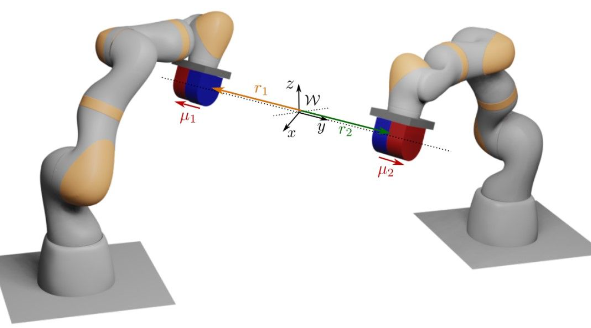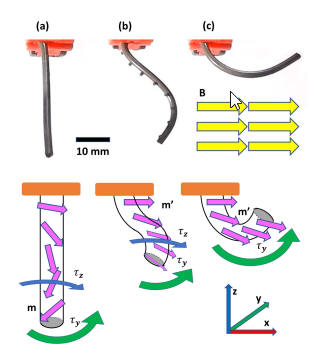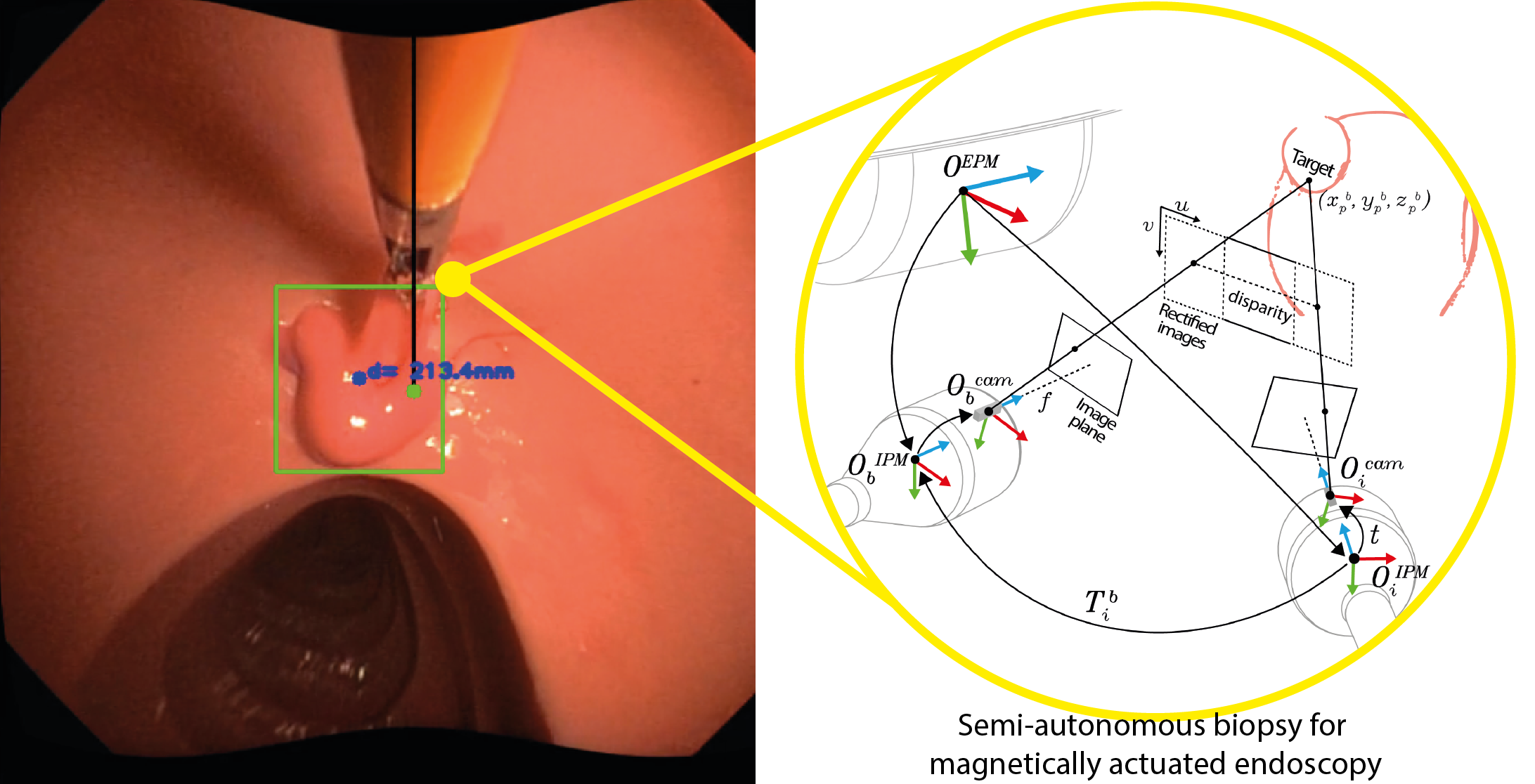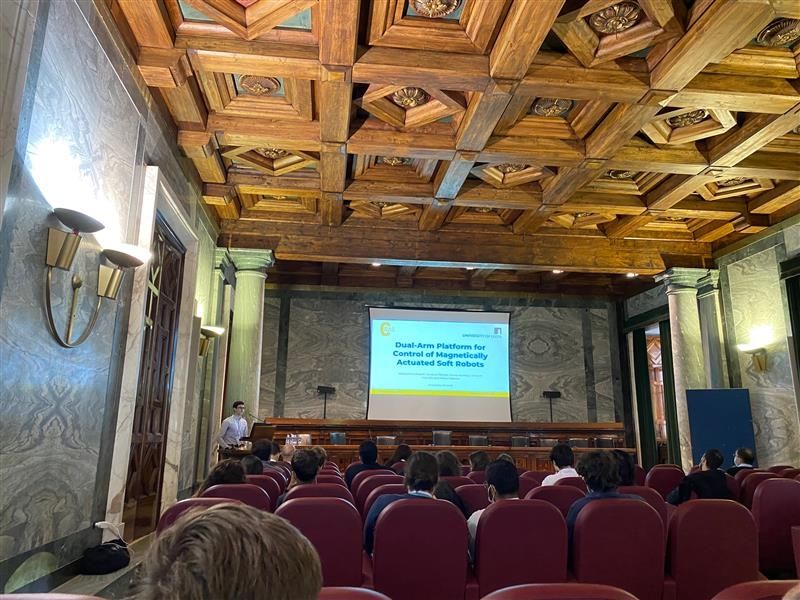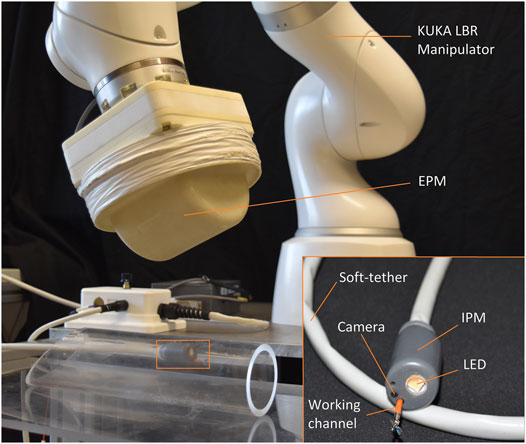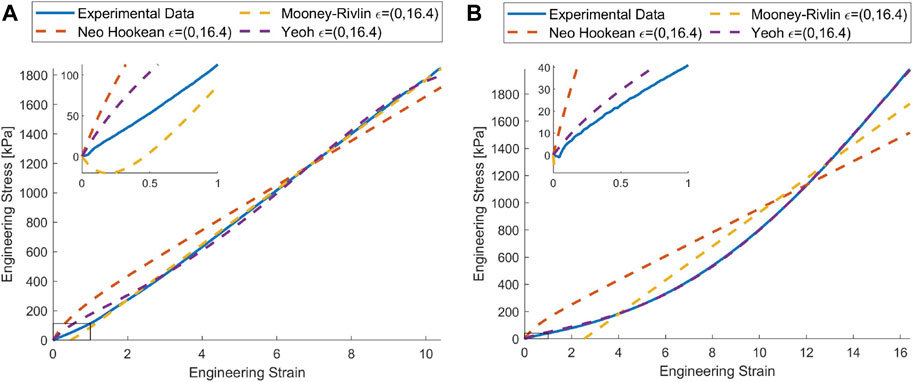What happens if you place two large magnets at the end effector of two serial robots? How many independent degrees of freedom can be magnetically controlled in the central workspace? We have explored these and other research questions in our latest IEEE Transactions on Robotics paper that introduces the dual External Permanent Magnet (dEPM) platform. […]
Gordon Research Seminar presentation and the Gordon Research Conference
Michael and Giovanni had the privilege and pleasure to present their work at the first ever Gordon Research Seminar (GRS) on Robotics last week. While Professor Valdastri presented a summary of the progress made by the Tentacles project at the Gordon Research Conference (GRC). Professor Valdastri summarized the event by saying “Cutting edge research shared […]
Magnetic Soft Continuum Robots With Braided Reinforcement
Flexible catheters are used in a wide variety of surgical interventions. In many cases a lack of dexterity and miniaturization along with excessive stiffness results in large regions of the anatomy being deemed inaccessible. Soft, magnetic snake-like robots have the potential to mitigate these issues. Currently, flexible magnetic catheters rely on interactive forces to “follow […]
‘Robotic Autonomy for Magnetic Endoscope Biopsy
The magnetic flexible endoscope team have just published their latest work entitled ‘Robotic Autonomy for Magnetic Endoscope Biopsy’ to IEEE Transactions on Medical Robotics and Bionics. Tissue biopsies taken during colonoscopy are important to aid in the early detection of diseases such as colorectal cancer, Crohn’s and Ulcerated Colitis. Using our magnetic endoscope, developed to […]
CRAS paper featured in Computer Vision News
Best Paper Award at the 2022 edition of the Conference on New Technologies for Computer and Robot Assisted Surgery (CRAS)
Kudos to Michael Brockdorff and the rest of the magnetic tentacle team at the STORM Lab for receiving the Best Paper Award at the 2022 edition of the Conference on New Technologies for Computer and Robot Assisted Surgery (CRAS) in Naples for the work “Dual-Arm Platform for Control of Magnetically Actuated Soft Robots”. You can […]
Active Stabilization of Interventional Tasks Utilizing a Magnetically Manipulated Endoscope
In this new paper from our Lab (Active Stabilization of Interventional Tasks Utilizing a Magnetically Manipulated Endoscope), we show how intelligent robotics can help with stabilizing the tip of a flexible endoscope and support a gastroenterologist in acquiring a tissue sample during a colonoscopy. This task is crucial for colorectal cancer screening and it often […]
A robot small enough to explore the lungs
Engineers and scientists have paved the way for a robot that can reach some of the smallest bronchial tubes in the lungs – to take tissue samples or deliver cancer therapy. Though still a prototype, the robot can reach the inner recesses of the human body with minimal invasion, a task that has long frustrated […]
Top honour for engineer pioneering medical robots
A leading academic at the University of Leeds has been honoured for his work in developing medical robots. Pietro Valdastri, Professor of Robotics and Autonomous Systems in the School of Electronic and Electrical Engineering and Director of the STORM Lab, has been made a Fellow of the Institute of Electrical and Electronic Engineers (IEEE). Fellowships are given to a limited […]
Evolutionary Inverse Material Identification: Bespoke Characterization of Soft Materials Using a Metaheuristic Algorithm
In our quest towards creating highly dexterous soft surgical robots to diagnose and treat cancer, reliable material modelling is crucial. In this new paper, we present a framework for fitting hyper-elastic model parameters by means of an evolutionary algorithm. This AI-based approach allows to navigate more efficiently the vast and complex design parameter space, showing […]

